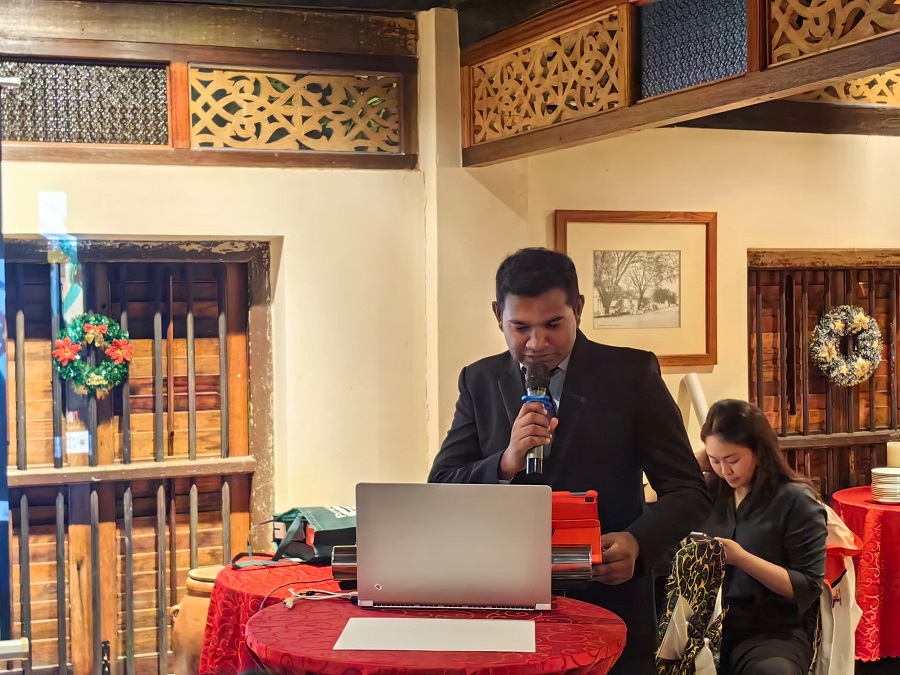40th Advance Studies Program
40th Advance Studies Program
RAMESH KANNAN
YMCA NEGOMO, SRI LANKA
Reflection and re- entry plan
Introduction
Participating in the 40th Advance Studies Program (ASP) was a transformative experience that broadened my understanding of the YMCA movement and deepened my commitment to community service. Held in the culturally rich city of Penang, Malaysia, the program brought together YMCA leaders and staff from across the Asia-Pacific region for an intensive period of learning, reflection, and fellowship.
As a representative of the YMCA Negombo, Sri Lanka, I was privileged to engage in a wide range of sessions that addressed pressing social issues, organizational development, leadership, and personal growth. Each component of the program—from contextual Bible studies and exposure visits, to in-depth discussions on good governance, climate justice, and youth empowerment—offered practical knowledge and new perspectives that I am eager to bring back and apply within my local YMCA.
The ASP not only equipped me with tools to strengthen our organizational impact but also fostered a sense of unity and shared purpose among participants. Through this re- entry plan, I aim to translate these learnings into meaningful action in my community and contribute more effectively to the YMCA’s mission of empowering individuals and nurturing holistic development.
 |
 |
 |
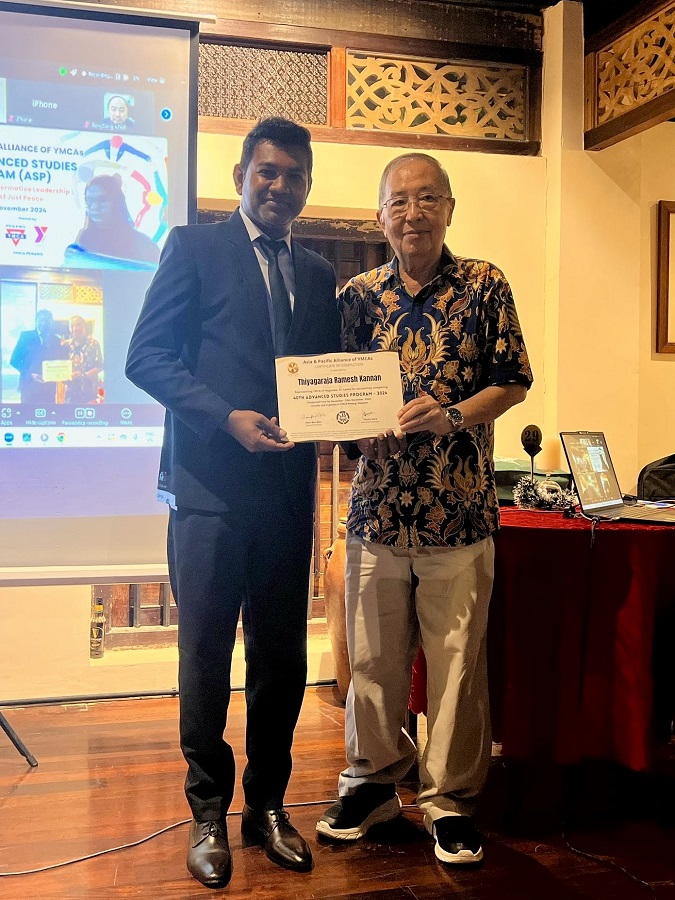 |
Sharing about YMCAs
This session helped me a lot in understanding the various areas of work of other YMCAs and how they engage in community services through their respective organizations. Additionally, it provided valuable insights into the different programs and projects they are involved in, as well as their governance structures. Further, it also gave me some ideas to incorporate other YMCA activities into our future implementation.
Sharing Life Stories
This session provides a platform for all participants to share their personal life journeys. It offers an opportunity to learn more about each participant's family background, culture, education, school life, and the challenges they have faced both as professionals and, in some cases, as parents. It also highlights how they have overcome these difficulties. For a long residential program like this, this session helps us better understand one another.
APAY
The session presented by Ms. Sunita on the APAY provided an understanding of its structure and leadership, as well as how it operates in the Asia-Pacific region. It also highlighted the programs organized through its committees, along with the additional pillar of movement strengthening, which is included in Vision 2030.
YMCA Mission in Context
The YMCA mission presentation, conducted by Mr. Nam, reviewed our YMCA practices and how they have changed in the present context. It also reminded us to stay focused on our core mission, which is based on Paris basis principles.
Climate Justice for a Sustainable Planet
Mr. Ben Seng’s session on climate justice for a sustainable planet was an eye-opener for me, as an individual, in understanding how we all contribute to climate change. It also highlighted how we can reduce pollution on an individual level and the immediate initiatives organizations should take. Furthermore, the session resonated with the situation in my hometown, where the sea and lagoon are polluted by litter and waste, leading to microplastic pollution that affects aquatic life. We ultimately consume these microplastics through our food. The session also illustrated how this issue eventually boomerangs back to us.
Y’s Men International
The session led by Mr. Hiroyuki Tanaka provided us with a brief overview of the nature and scope of Y’s Men International's work. Additionally, it helped us understand that Y’s Men was formed to support various YMCA initiatives and gave me insight into how the YMCA could collaborate with them.
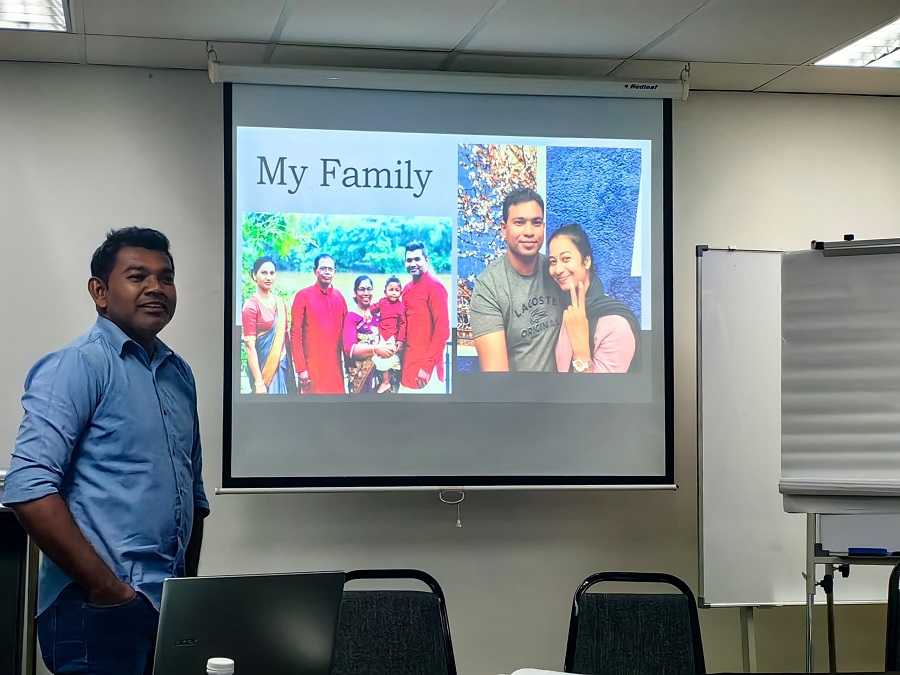 |
 |
Lay Professional Partnership
The above session conducted by Mr. Nam was very important one for me to understand the role of paid professionals and volunteers work together to provide programs and services for its community-focused approach. At the heart of this partnership is mutual respect, a shared vision, and the combining of different skills and perspectives. Staff and volunteers work together to create a supportive environment, ensuring YMCA programs effectively serve the community.
Agenda 2030 SDG’s
The session conducted by Mr. Dinesh Suna began with an introduction to the Millennium Development Goals, which were 8 international development goals and their failures. He then briefly explained the 17 Sustainable Development Goals (SDGs), which were adopted by 193 nations, although they are not legally binding. This gave me the understanding that, since these goals are not legally binding, many countries may not prioritize them. Nevertheless, the session provided valuable insight into the 17 key areas where YMCAs can focus their efforts.
Exposure Visits
Asia Community Center
The visit to ACS provided me with a valuable experience, and through this visit, I realized how they work with people with special needs. Despite their challenges, the caretakers treated them as members of the center, which gave the individuals a sense of ownership. This approach allowed them to feel connected to the community, empowering them to work with freedom and independence. The most important aspect of this center is it.
focus on identifying each individual's abilities and creating something unique, which they can then earn from. Furthermore, the center instills a great deal of confidence and belief in its members, engaging them in community activities such as bottle collecting and recycling. Inclusivity is a key value I observed at this center.
Orang Asli Village Visit
The visit to the Orang Asli – Semai tribe, an indigenous people of Malaysia, was a truly unique experience. From their lifestyle, I learned many valuable lessons. Despite living with limited resources, the joy, family bonds, and the way they care for one another in their village were remarkable and which is lack in developed cities, also their strong connection to nature is something increasingly absent in developed cities. The religious faith and trust they place in Christ, despite knowing it may limit their development and reduce the support they receive from developers, is admirable. Yet, they remain committed to their faith. The prioritize education for future generations is demonstrates their long-term vision, as they believe education will enrich their community and improve their lives. Compared to the rural villages in my home country, the Orang Asli village is much more developed. They have smartphones, satellite TV, electricity facilities and vehicles—all of which I strongly believe they have achieved through their hard work and determination to improve their community.
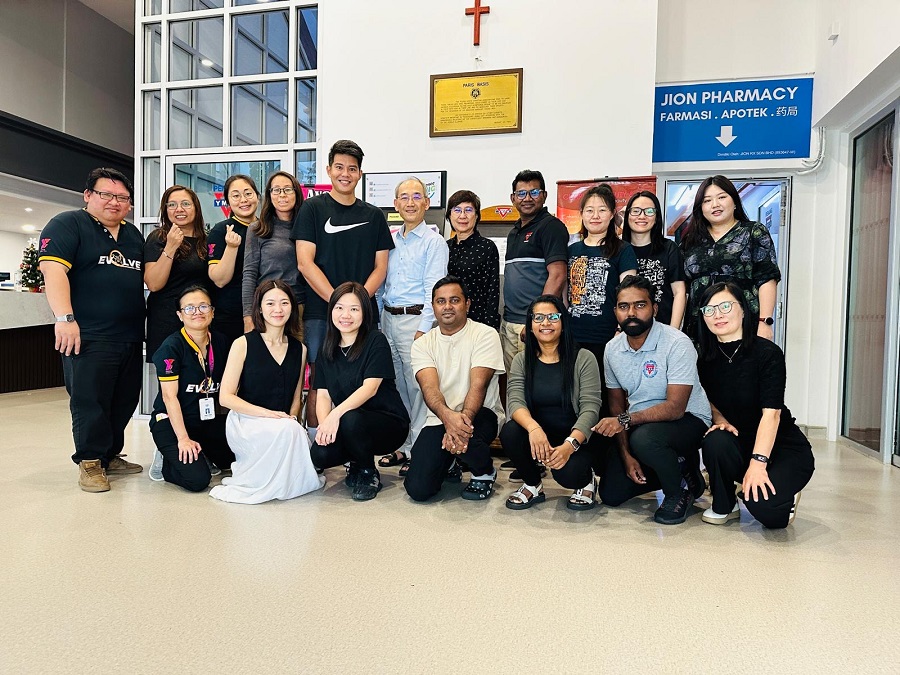 | 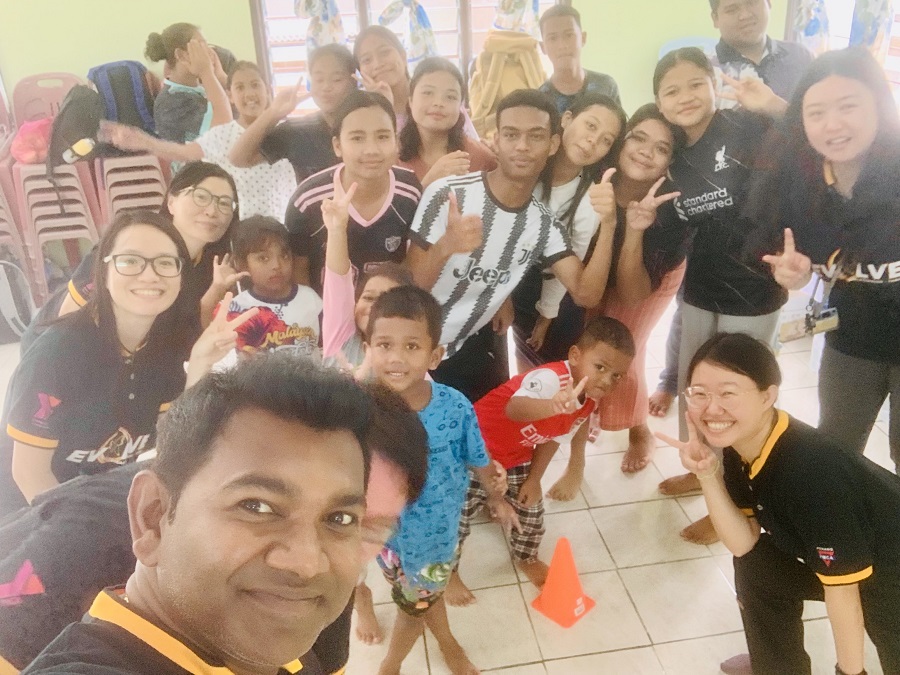 |
Geopolitical Shifts in the Asia – Pacific
The session conducted by Mr. Chandra Muzaffar helped me understand how major political powers play significant roles in the economies of developing countries and how the political decisions of these powerful nations impact developing countries. During the group discussion on this topic, I was able to connect it to the political and economic situation in Sri Lanka. I observed how major powers like the US, China, and India influence Sri Lanka's decision-making process, both politically and economically, and how the country’s dependence on these nations shapes its choices.
Contextual Bible Study
Participatory Bible study – Ms. Sunita
The participatory Bible study, led by Ms. Sunita, showed me how Bible passages can be discussed within a group, with each member offering their own interpretations. Approaching the passage from various perspectives—curiosity, imagination, and liberation—allowed for a diverse range of reflections.
Creative Workshop on Peace
Ms. Valli’s creative workshop was a new and valuable experience. It taught me how social issues can be addressed from a peacebuilder’s perspective. The NSDR (Non-Sleep Deep Relaxation) technique highlighted the importance of relaxing both the mind and body, which in turn helps peacebuilders generate creative ideas.
Youth Empowerment and Meaningful Work
Ms. Yura’s session on youth empowerment and meaningful work provided an overview of the committee's work and the related activities under the APAY department. The survey details shared during the session helped me understand the importance of taking a deeper look into the needs of young people. Based on their requirements, we must modify our services accordingly.
Understanding Gender and Gender Equity
Ms. Sunita’s session on gender equity emphasized that we should not only provide equality but focus on understanding people’s needs and providing equity. This principle should be practiced in our personal lives, workplaces, and in the community.
Movement Strengthening
The Session conducted Ms. Christina I learned that the Movement Strengthening is a process to develop our organization that deepen the community impact and the collective mission of YMCA. It focuses on strengthening the organization’s mission, values, and capacity to better serve individuals and families, good governance and leadership and building a financial and operational sustainability.
Good Governance
The Session conducted by Mr. Duncan Chowdhury on Good Governance was insightful and helped to understand key principles for running the YMCA effectively. He highlighted the importance of ethical leadership, accountability, and strategic decision-making, stressing that following the YMCA's constitution is crucial for transparency, accountability, and trust. The session also emphasized the need for ongoing evaluation and improvement in governance to keep the YMCA aligned with its mission and responsive to community needs. Overall, it provided valuable knowledge and tools to ensure the YMCA operates smoothly and makes a positive impact.
Proposal Writing
Through this session, I learned the basics of writing a proposal, including the essential elements to include, how to implement a proposal, and the guidelines for drafting one.
